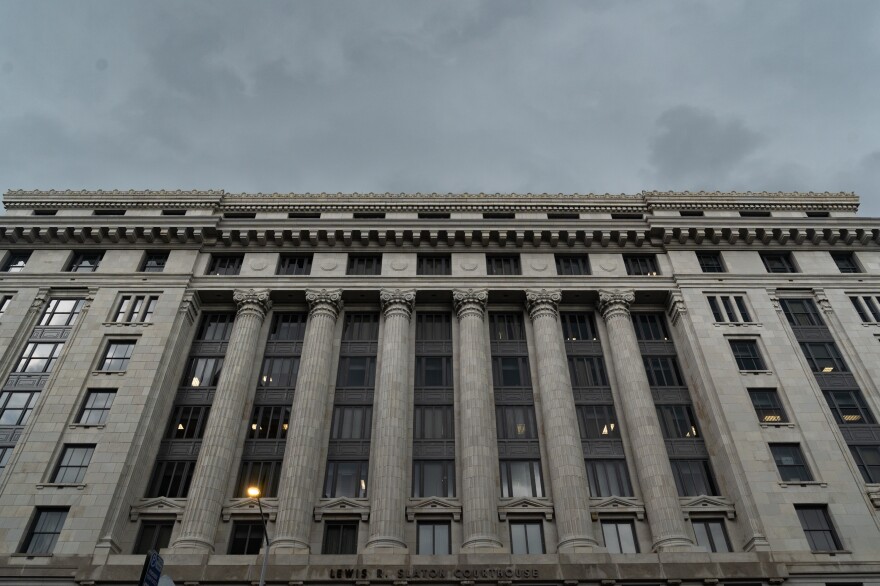Updated September 8, 2023 at 12:26 PM ET
A special grand jury that spent eight months investigating efforts by former President Donald Trump and others to overturn Georgia's 2020 election results recommended nearly 40 people face criminal charges.
In a 9-page report fully unsealed by a judge Friday, the special purpose grand jury told Fulton County District Attorney Fani Willis it recommended prosecutors seek indictments against the former president for his Jan. 2, 2021 call with Republican Georgia Secretary of State Brad Raffensperger where he pressed the state's top election official to overturn his already-certified defeat.
The special panel, which interviewed more than 75 witnesses but did not have the power to issue indictments, found 39 different people allegedly violated more than a dozen state laws, including making false statements and writings, solicitation of election fraud and Georgia's sweeping anti-racketeering law.
Several high-profile Republicans found in the jury's report did not face charges in the 98-page indictment handed up in Fulton County last month, such as former Sens. David Perdue and Kelly Loeffler, R-Ga., current Sen. Lindsey Graham, R-S.C., attorneys Lin Wood and Cleta Mitchell and others involved in the months-long, multifaceted effort to undo Trump's narrow loss in Georgia.
Perdue and Loeffler called for Raffensperger to resign and made false claims about Georgia's election results before losing in January 2021 runoffs that saw some conservative voters stay home because of their claims. Graham called Raffensperger after the election and discussed if the secretary of state could reject certain absentee ballots.
While the report does not reference specific charges for certain high-profile players, Graham and Perdue and Loeffler are listed along with 23 total people the special grand jury recommended for indictment "with respect to the national effort to overturn the 2020 presidential election."
Ultimately, the decision of who to charge with what rests with the district attorney's office and a regularly empaneled grand jury, and the special jury's inclusion of many names like Perdue, Loeffler and Graham neither indicates cooperation with prosecutors nor possibility of future charges.
In a footnote, the report makes clear that "one of the dissenting jurors voting against recommending seeking indictments of former Sens. Perdue and Loeffler on a racketeering claim believes that their statements following the November 2020 election while pandering to their political base, do not give rise to their being guilty of a criminal conspiracy."
The brief report largely mirrors the charges and characters found in Willis' racketeering indictment brought in August, including Trump, his onetime personal attorney Rudy Giuliani and former Georgia Republican Party Chair David Shafer as central figures.
In addition to the Trump-Raffensperger call, the special jury recommended charges stemming from "persistent, repeated communications directed to multiple Georgia officials and employees;" efforts to harass and coerce a Fulton County poll worker into falsely admitting she committed election fraud; a scheme to have 16 Republicans falsely claim to be Georgia's official electors; unlawful access of election equipment in rural Coffee County; a series of legislative hearings where false claims were made about the state's election results; and the national effort to overturn the 2020 presidential election in Georgia and other swing states.
Judge Robert McBurney ordered a limited release of the report in February, only allowing the introduction, conclusion and a section detailing concerns about witnesses lying under oath to be made public. McBurney wrote that those sections did not violate due process concerns of anyone that may or may not be later charged.
The report opens with a timeline of the special grand jury's work, from the DA's first request for the panel to the 75 witnesses that came before the closed-door body, also noting that the group voted unanimously that "no widespread fraud took place in the Georgia 2020 presidential election that could result in overturning that election."
Copyright 2023 Georgia Public Broadcasting


